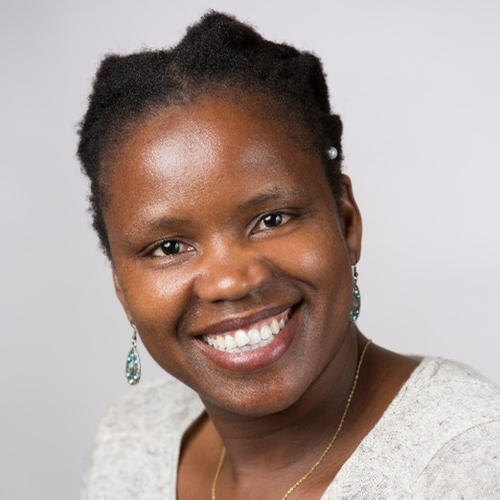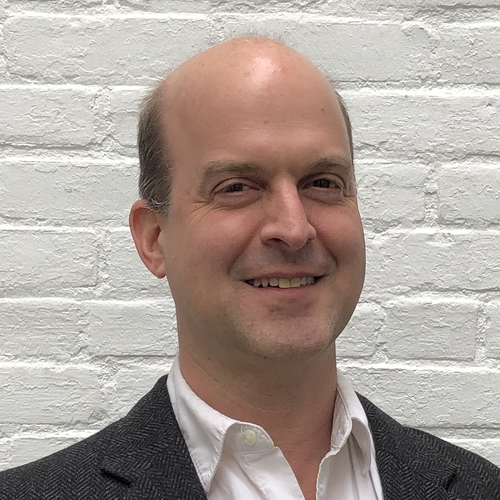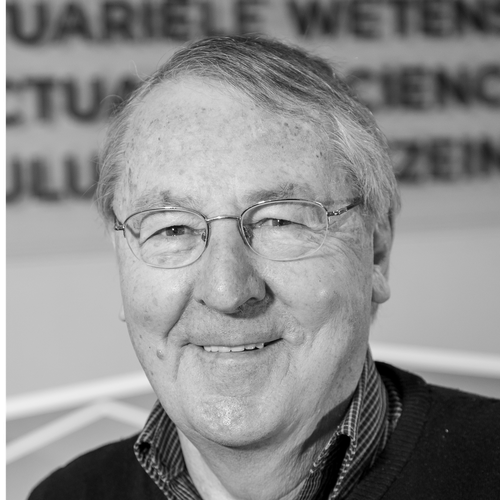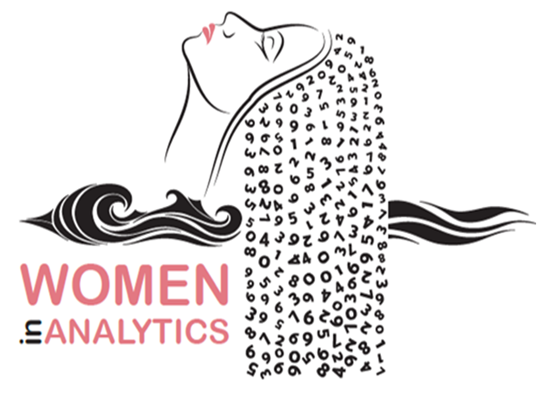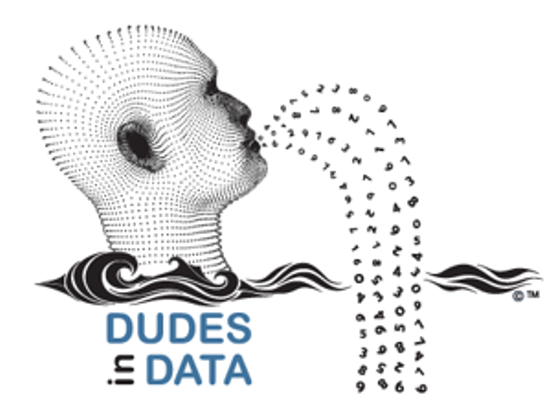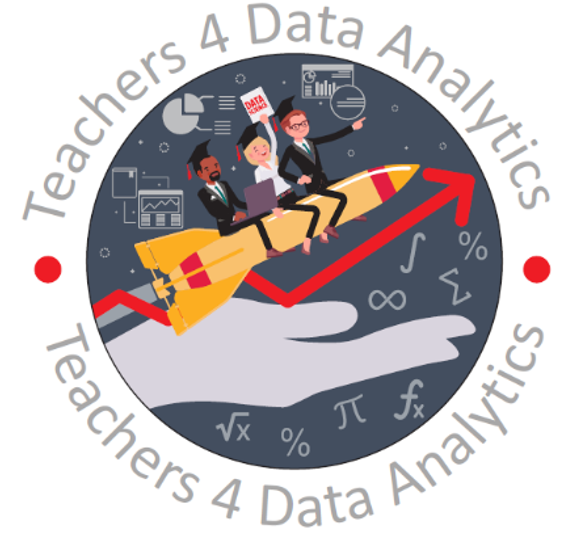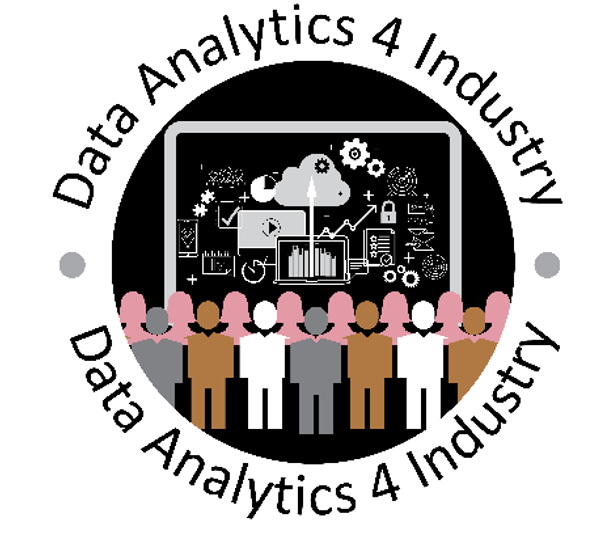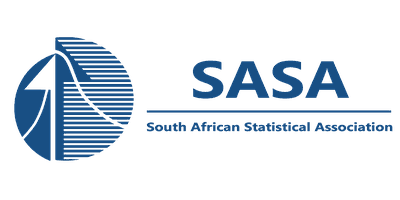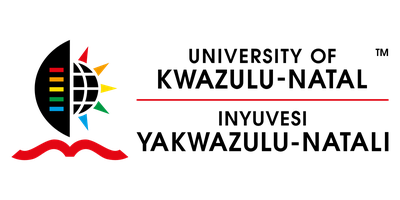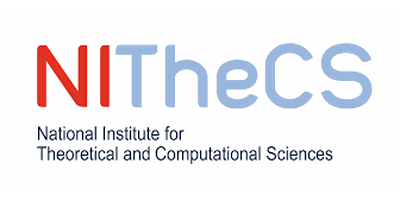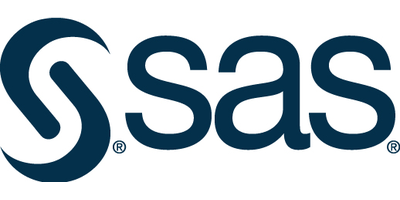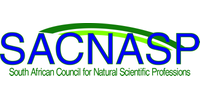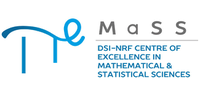The SASA 2023 LOC invites you to celebrate Statistics by the Sea
The SASA conference is the flagship South African statistics event for statisticians, analytics experts and data scientists from South Africa and abroad. This is a preeminent event on the statistics calendar in South Africa and brings statisticians and data experts from around the country and abroad together to share their research, discuss new ideas and to meet and establish collaboration.
The SASA 2023 conference is emphasising the home-grown talent, expertise and vast experience held within our local universities, research institutions and industries. SASA 2023 is proud to have our local experts deliver keynote addresses alongside our invited international guests. In addition, SASA 2023 will have a number of events and features aimed at attracting young statisticians, to network and benefit from their interaction with local and invited international experts in the field.
SASA 2023 will be held in Durban, at the Southern Sun Elangeni-Maharani Conference Venue and Hotel. This iconic venue is situated on the 7km promenade, with sweeping views of the Indian Ocean, which is perfect to encourage high levels of academic and social interaction. The conference will run from 27 November to 1 December 2023, with workshops on the first two days and parallel sessions/plenary sessions from Wednesday to Friday. The program will include talks by Internationally acclaimed invited guest Statisticians, Special Interest Group Sessions/Focus Group workshops, along with a Cocktail Function, Gala Dinner, Young Statisticians Event, Business Breakfast and various other social activities.
Invited Speakers
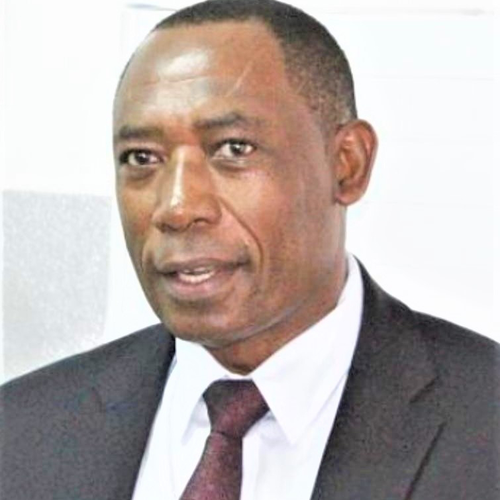
Oliver Chinganya
Director of African Centre for Statistics, UN Economic Commission for Africa (UNECA)
More Information
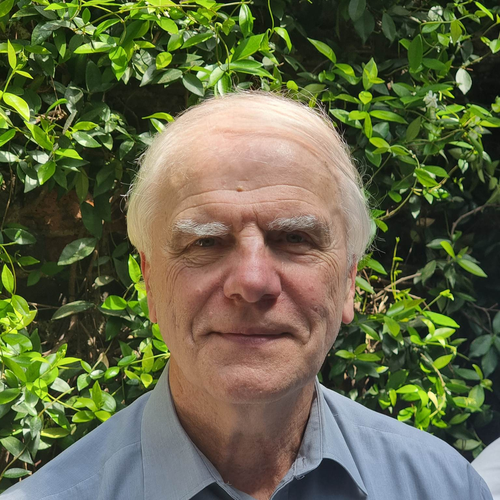
Maxim Finkelstein
Prof/Professor in Statistics/Mathematical Sciences at University of the Free State, RSA
More Information
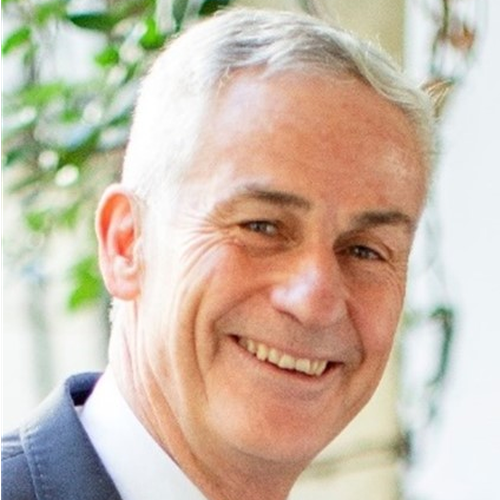
Murray de Villiers
Director/Education Go-to-Market, Europe, Middle-East and Africa of SAS Institute (Pty) Ltd
More Information
Details of the plenary and keynote addresses presented by the invited guests will be announced soon.
Workshops
DAY 1 WORKSHOPS (Monday, 27 November 2023)
Workshop 1: Introduction to Causal Inference
Monday, 27 November
08h30 - 16h30
Erin Evelyn Gabriel & Andreas Kryger Jensen
Associate Professors at the Section of Biostatistics, Department of Public Health, University of Copenhagen, Denmark
About the workshop:
The attendees will obtain a basic understanding of the language and structure of causal inference and its application within their own applied research questions. Attendees will learn to formulate causal questions and their corresponding estimands, and how estimates can be obtained under necessary identifiability conditions. They will be able to implement and apply basic causal inference methods in R to obtain estimates of identifiabile estimands. Attendees will understand and be able to explain to others the danger of unmeasured and residual confounding as well as the use of ad hoc "causal inference" methods; for example, the combination of inverse probability of treatment weighting and a Cox model, which does not result in a doubly robust
estimator.
Click here to download more information on the course prerequisites, structure and content.
About the presenters:
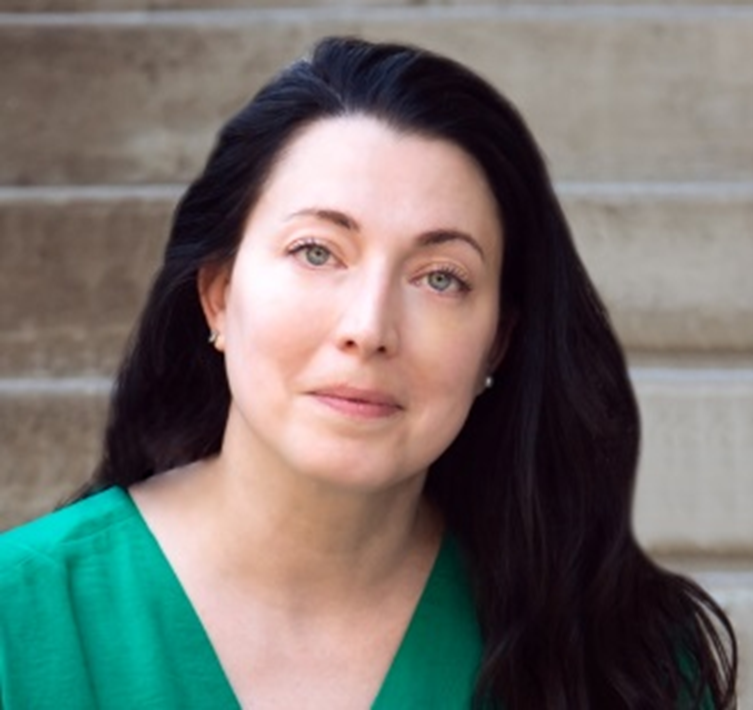
Prof Erin Evelyn Gabriel obtained her Ph.D. degree in Biostatistics in 2012 from the University of Washington, Seattle, and is currently employed as an Associate Professor at the Section of Biostatistics, Department of Public Health, University of Copenhagen, Denmark, and is an affiliated researcher at National institute of allergy and infectious disease at NIH, USA. Her research interests primarily focus on causal inference, clinical trial design and analysis, and exact methods. In addition to these research topics, she has been the lead statistician on numerous clinical trials and large cohort studies. She has independent research funding as a PI in two countries, including the Novo Nordisk Data Science Ascending Investigator Grant.
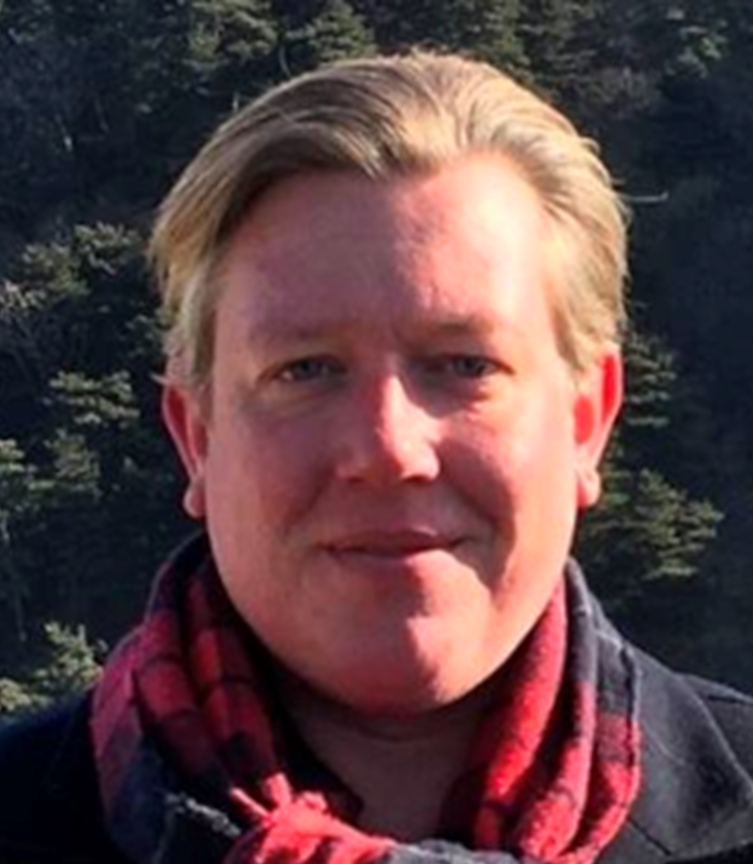
Prof Andreas Kryger Jensen obtained his Ph.D. degree in Biostatistics in 2014 from the University of Southern Denmark and is currently employed as an Associate Professor at the Section of Biostatistics, Department of Public Health, University of Copenhagen, Denmark. His research interests are primarily focused on functional data analysis (such as high-throughput data from wearable and continuous glucose monitoring devices, electrocardiograms, and data from CT-scans), causal inference, and various applications of Bayesian statistics in public health research. In addition to these research topics, he has for nine years been a statistical consultant at a research hospital, where he has engaged in planning, advising, and analyzing data from clinical trials. He has been a member of large-scale, government funded research projects in Sub-Saharan Africa, and he is the current President of the Nordic-Baltic region of the International Biometrics Society.
___________________________________________________________________
Workshop 2: Introduction to Bayesian Modelling and Computation Using R
Monday, 27 November
08h30 - 16h30
Michael Rogans
Lecturer, University of Witwatersrand
Allan Clark
Senior Lecturer, University of Cape Town
Sonali Das
Associate Professor, University of Pretoria
About the workshop:
This workshop aims to introduce the fundamentals of the Bayesian framework for statistical modelling. The framework will be illustrated with the aid of several historical examples that track the development of Bayesian statistics to its current form, starting with Thomas Bayes. Following this, the workshop will cover various computational methods for approximating the posterior and posterior predictive distributions, which include grid approximation, rejection sampling, the Metropolis-Hastings algorithm, and Gibbs sampling, to name only a few. These methods will be applied to the examples covered previously in the workshop, and will be implemented using the open-source R software.
The workshop will be a combination of theory, case-studies, and examples that will be worked on with the participants.
Click here to download more information on this workshop.
About the presenters:
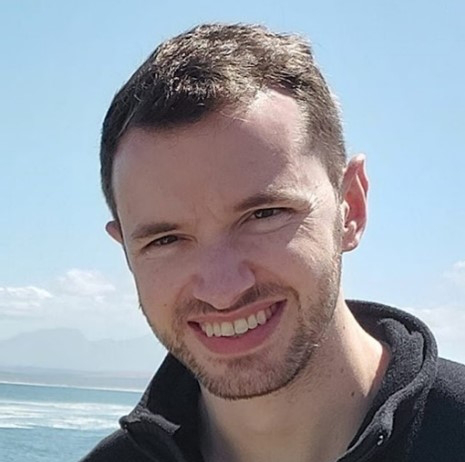
Dr Michael Rogans is a lecturer in the School of Statistics and Actuarial Science at the University of the Witwatersrand. His primary interest is in statistics education, with an emphasis in Bayesian statistics. After completing a Masters degree at Cambridge University, he attained his PhD in 2019 at Wits, in which he considered various topics in stochastic processes and how they translate to the more general setting of vector lattices. He is currently working on a comprehensive course material covering Bayesian statistics aimed at undergraduate through to postgraduate students of Mathematical Statistics.
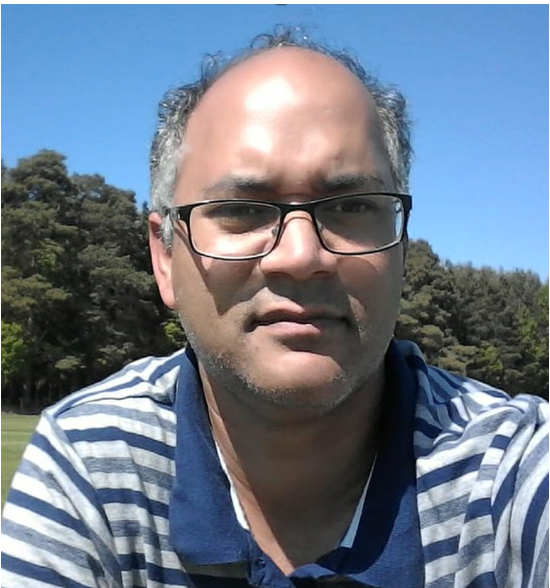
Dr Allan Clark's primary area of research entails the development of statistical methods to answer various environmental questions. The models he works on relate to occupancy modelling, capture-recapture methods, and abundance estimation, all primarily from a Bayesian point of view. He completed his Ph.D. in 2022 and developed Bayesian algorithms for various occupancy models. He publishes widely, and his list of publications includes peer-reviewed articles in the fields of Marketing, dose escalation studies (clinical trials), Finance, and Ecology, amongst others. He is an active member of SEEC (Statistics in Environment, Ecology, and Conservation) and has supervised postgraduate students in Commerce (Credit risk), Biological studies (Bayesian occupancy models) as well as Statistical Sciences (Machine learning, Convolutional Neural Networks, Spatial modelling).
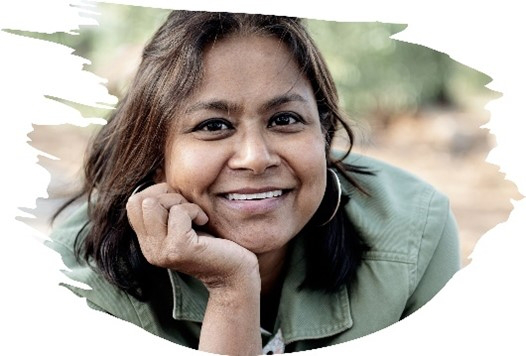
Prof Sonali Das is an Associate Professor at the University of Pretoria (UP). She obtained her PhD in Statistics from the University of Connecticut (USA) in 2006, and holds a C-Rating (Established Researcher) in Statistics from the South African National Research Foundation (NRF). In 2019, she became an Elected Member of the International Statistical Institute, and in 2020 was one of 19 Africa-wide recipients of the Mujeres por Africa Foundation award from Spain. Her current interests lie in developing models to assess risks within the adversarial risk framework, and functional data framework, with Bayesian extensions where appropriate, all with focus on applications to climate and business problems. Along with Allan Clark, she looks after the Bayes Special Interest Group within SASA.
___________________________________________________________________
Workshop 3: An Introductory Overview of Extreme Value Theory and Applications
Monday, 27 November
Half day: Morning Session
Tertius de Wet
Professor, Stellenbosch University
Luca Steyn
Lecturer, Stellenbosch University
About the workshop:
This workshop will give a wide-ranging introduction to Extreme Value Theory (EVT) covering both the theory and analyses for application. The need for, and scope of, carrying out extreme value analyses and the type of statistical problems covered by it, will be discussed. The theory needed for such analyses will be introduced from which different approaches to such analyses will be discussed. Within these, the ubiquitous trade-off between bias and variance is especially relevant and these will be emphasised. Although the theory has a solid mathematical basis, the latter will be explained in terms of its ideas rather than the intricate details thereof. The major part of the workshop will focus on the case of univariate independent, identically distributed (i.i.d.) data although extensions to non-i.i.d. data will also be discussed. These will include dependent data, non-identically distributed data, and multivariate data.
The major approaches to analyses will be discussed with emphasis on the likelihood approach. These analyses are almost exclusively based on asymptotic results for which goodness-of-fit diagnostics are essential. The most important of these will be discussed. Traditional applications will be discussed as well as more modern applications to the field of Machine Learning. The applications will be illustrated using R and Python.
No prior EVT knowledge is needed but some background in limit distribution and inference theory will be advantageous. The expected outcomes are a working knowledge and understanding of EVT and its application to data sets.
About the presenters:
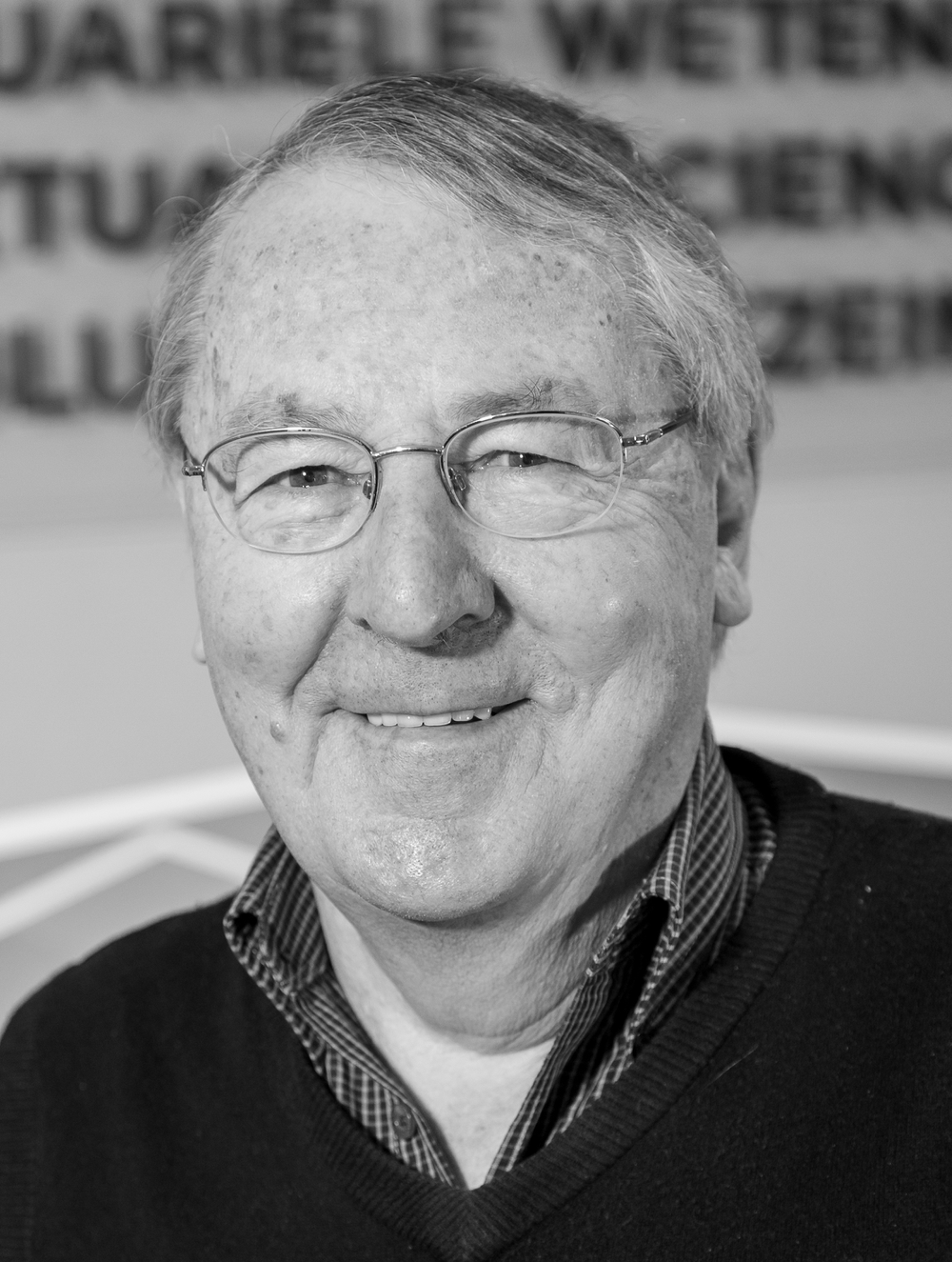
Prof Tertius de Wet is one of this year's Invited Speakers.
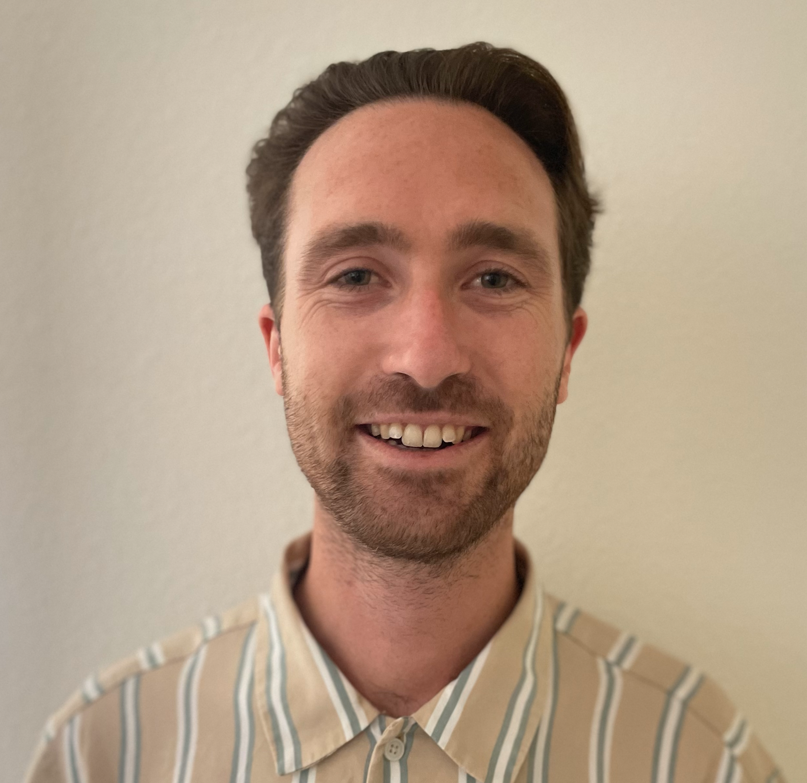
Luca Steyn is a data science lecturer at the Department of Statistics and Actuarial Science, Stellenbosch University, specialising in machine learning, optimisation, and deep learning. Currently he is pursuing a PhD in Mathematical Statistics jointly at Stellenbosch University and Bioscience Engineering at Ghent University, Belgium. His research focusses on exploring innovative approaches to combine deep learning and extreme value theory for open-set recognition.
___________________________________________________________________
DAY 2 WORKSHOPS (Tuesday, 28 November 2023)
Workshop 4: Introduction to measuring competitor ability in games and sport
Tuesday, 28 November
Half day: Morning Session
Mark Glickman
Senior Lecturer, Harvard University, USA
About the workshop:
One of the most important tasks in sports analytics is the development of methods to measure player or team strength from game outcomes or within-game performance. In this workshop, we discuss commonly used probability models for game outcomes in head-to-head sport, including the Bradley-Terry and Thurstone-Mosteller models for binary game outcomes, along with extensions to head-to-head outcomes with ties and models accounting for home-field advantage. We build upon these models by considering dynamic extensions that account for the evolution of team and player strengths over time. Full analyses of these time-varying models can be simplified into rating systems, such as the Elo and Glicko rating systems. Time-permitting, we further discuss methods for assessing player strength within team games inferred from play-by-play data using the "plus/minus" approach and its variants. Applications of the discussed methods are demonstrated using sport data examples throughout the workshop, with opportunities for participants to fit models and analyze data throughout the discussion.
Assumed prior knowledge:
Technical background equivalent to a masters degree in Statistics. Working familiarity using the R statistical package.
Anticipated outcomes:
Upon completion of this workshop, participants can expect to
- acquire a deeper understanding of probability models used in measuring ability in games and sport
- develop the skills to apply these models in practical situations
- gain familiarity with commonly used rating systems, and how they may be applied to inform decisions and predictions
About the presenter:
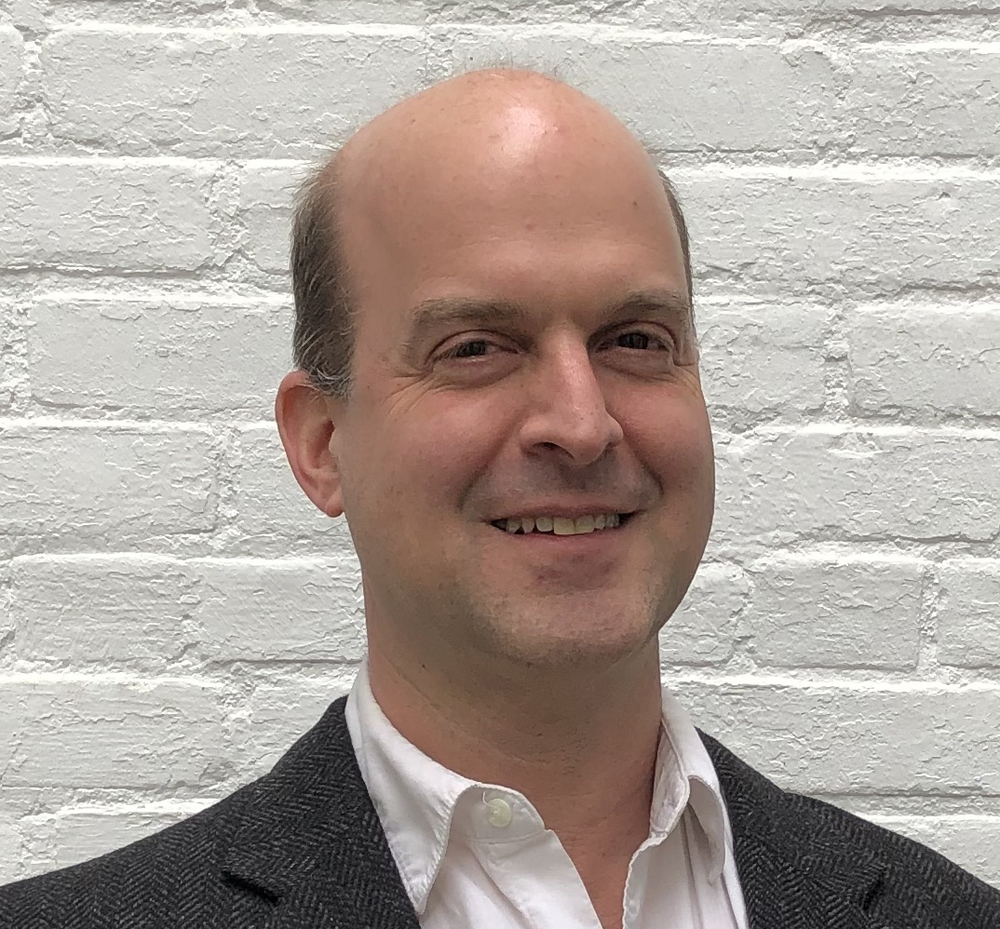
Dr Mark Glickman is one of this year's Invited Speakers.
___________________________________________________________________
Workshop 5: Design of Computer Experiments
Tuesday, 28 November
Half day: Afternoon Session
Dennis Lin
Professor, Purdue University, USA
About the workshop:
The rapid growth in Data Science calls for the fundamental issue of "where did data came from" (and consequently the data quality). Data Collection becomes the most relevant problem, but typically ignored in the study. The conventional randomization can be useful in some areas, it is however proved to be inefficient in many applications. This course offers some recent advanced in data collection methods. To learn how to plan, design and conduct experiments efficiently and effectively, and analyze the resulting data to obtain objective conclusions. The course will introduce students to the statistical design and analysis of both physical and computer experiments in general. Of particular interest are industrial experimentation, dynamic computer models, with output over time and/or space. Recent developments on Digital Twins will be discussed in hope that more research will be conducted in the near future.
Assumed prior knowledge:
Basic simulation and basic Statistical inference.
Anticipated outcomes:
A good understanding of the power of computer experiment/simulation...consequently, running simulation in an efficient manner.
About the presenter:

Dr Dennis Lin is one of this year's Invited Speakers.
___________________________________________________________________
Workshop 6: Presented in two parts
Part A: Likelihood Ratio Tests (LRTs) for High-dimensional Multivariate Analysis
Tuesday, 28 November
Morning Session (09h00-12h00)
Carlos A. Coelho
Professor, Mathematics Department and NOVA Math (Center for Mathematics and Applications), NOVA School of Science and Technology, NOVA University of Lisbon
About the workshop:
It will be shown how by reducing the number of parameters necessary to specify the structure of the covariance matrix, although still leaving it with a wide enough structure adequate to be used in most situations, we will be able to develop LRTs that can be used in several useful Multivariate Analysis problems in the high-dimensional setting (that is, when the sample size is smaller than the number of variables being used). An LRT for the one-way MANOVA will be shown, which is able to outperform all known tests in most situations. The associated statistic has a rather simple Normal asymptotic distribution, which is asymptotic for increasing numbers of variables and which can be used with any sample sizes. Moreover, the test can be used with extremely small samples (of size just 1, if at least one of them has size at least 2), and it shows much larger power than existing tests in most situations as well as a better control of the type I error. Still, it can be used with very skewed distributions, heavy-tailed distributions, and even discrete distributions. Also an LRT to test the fit of the multivariate linear model is also introduced, as well as an LRT to test between an original model and its submodels, both of which may be used either in the high-dimensional or in the low-dimensional setting will be presented. Such LRTs may then be used for example to test the fit of the multi-way MANOVA model and to test the significance of factors and interactions. Results obtained from several simulations, as well as results obtained from analyses on real data sets will be shown.
Participant prior knowledge:
This morning session is designed for any participants with master-level statistical training.
___________________________________________________________________
Part B: Jointly Analyze Longitudinal Data & Time-To-Event Simultaneously: An Integrative Data Harmonization Approach
Tuesday, 28 November
Afternoon Session: (12h00-16h00)
Ding-Geng (Din) Chen
DST-NRF-SAMRC SARCHI Research Chair in Biostatistics, Extraordinary Professor in Biostatistics,
Department of Statistics, University of Pretoria, South Africa.
Executive Director and Professor in Biostatistics,
College of Health Solutions, Arizona State University, Phoenix, USA
About the workshop:
Drawing on theory and prior research in clinical trials, evidence-based health research can generate data from different sources and phases of health interventions. A central feature of evidence-based public health intervention research is the sequential and longitudinal implementation with that participants may drop out or die or be censored during the time of the study. This workshop is to discuss the integrative data harmonization and joint modeling and latent-class joint-modeling of longitudinal data and time-to-event (such as, dropout and censored) data simultaneously, which has the potential to produce a more efficient and more powerful statistical analysis. Specifically, this afternoon session is to give an overview of statistical joint-modeling and latent-class joint-modeling to simultaneously analyze the data from longitudinal biomarkers and time-to-event with data from HIV/AIDS clinical trials. It is designed with a step-by-step implementation in the statistical software R with R packages of "JMBayes2" and "lcmm". Participants are welcome to bring their own research data to be used in this workshop as examples.
Participant prior knowledge:
This afternoon session is designed for any participants with master-level statistical training and basic R knowledge.
About the presenters:

Dr Carlos A. Coelho is a Full Professor of Statistics at the Mathematics Department of NOVA School of Science and Technology of NOVA University of Lisbon. He holds a Ph.D. in Biostatistics by The University of Michigan, Ann Arbor, MI, U.S.A., where he was a Fulbrighter. His main area of research is Multivariate Analysis, namely the development of likelihood ratio tests for elaborate covariance structures and for MANOVA models, also with elaborate covariance structures, together with the study of the exact distribution and the development of near-exact distributions for the associated test statistics. Related with this area, other areas of interest are Mathematical Statistics and Distribution Theory, as well as Estimation, Univariate and Multivariate Linear, Generalized Linear and Mixed Models. More recently, he also got interested in tests for high-dimensionality and the application of Multivariate Analysis techniques to Statistical Disclosure Control problems. Carlos A. Coelho has served as Associate Editor in the Editorial Boards of REVSTAT-Statistical Journal, the Journal of Interdisciplinary Mathematics and the Journal of Applied Statistics and currently serves in the Editorial Boards of the Journal of Statistical Theory and Practice, the American Journal of Mathematical and Management Sciences and Discussiones Mathematicae—Probability and Statistics. He is also Associate Editor of the Springer Book series "Emerging Topics in Statistics and Biostatistics" and a member of the International Council of the "Business World" Library of the Tsenov Academy of Economics (Svishtov, Bulgaria). Currently Carlos A. Coelho also serves as President of the Portuguese Fulbright Alumni Association
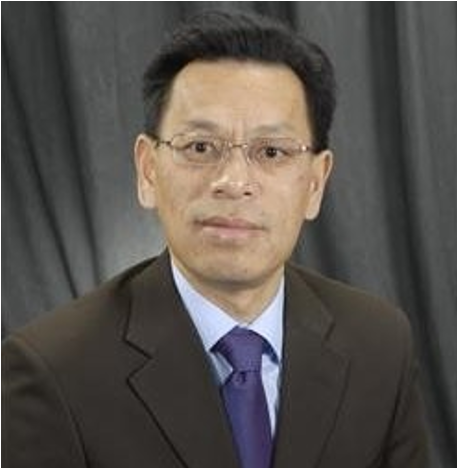
Dr Din Chen received his Ph.D. in Statistics from the University of Guelph (Canada) in 1995. He is now the DST-NRF-SAMRC SARCHI research chair in biostatistics and an extraordinary professor at the University of Pretoria, an honorary professor at the University of KwaZulu-Natal, South Africa. Dr. Chen is also the executive director and professor in Biostatistics at the College of Health Solutions, Arizona State University. He served as the Wallace H. Kuralt distinguished professor in biostatistics at the University of North Carolina-Chapel Hill, a biostatistics professor at the University of Rochester Medical Center, the Karl E. Peace endowed eminent scholar chair in biostatistics from the Jiann-Ping Hsu College of Public Health at the Georgia Southern University. Dr. Chen is an elected fellow of the American Statistical Association, an elected member of the International Statistical Institute, and a senior expert consultant for biopharmaceuticals and government agencies with extensive expertise in clinical trial biostatistics. Dr. Chen has more than 200 scientific publications and co-authored/co-edited 38 books on clinical trials, survival data, meta-analysis, causal inference and structural equation modeling, Monte-Carlo simulation-based statistical modeling. His research has been funded as PI/Co-PI from NIH R01s and other governmental agencies.
___________________________________________________________________
Workshop 7: Categorical Data Visualisation through the Variants of Correspondence Analysis
Tuesday, 28 November
08h30-16h30
Rosaria Lombardo
Università della Campania Luigi Vanvitelli, Naples, Italy
Eric Beh
University of Wollongong, Newcastle, Australia
About the workshop:
This workshop will introduce participants to the visualisation of categorical data using various forms of Correspondence Analysis (CA). Throughout the workshop, attendees will be guided through the theoretical framework and practical application of several variants of CA; these include the classic (symmetrical) approach, non-symmetrical CA, multiple CA, multi-way CA and their ordinal variants. A range of historical examples will be analysed that highlight the evolution and development of over time.
To enhance our understanding of CA, we will discuss the importance of some symmetric and asymmetric measures of associations for contingency tables including demonstrating the pivotal role that the Cressie-Read family of divergence statistics plays in CA.
By the end of the workshop, participants will have a solid grasp of how to effectively visualise and interpret the results obtained from applying CA to study categorical data. These methods will be applied to the examples covered previously in the workshop, and will be implemented using the open-source R software.
About the presenters:
The presenters have published numerous publications and two Wiley books on correspondence analysis:
2014: Correspondence Analysis: Theory, Practice and New Strategies
2021: An Introduction to Correspondence Analysis

Prof Rosaria Lombardo is Professor of Statistics at the Department of Economics of the University of Campania "Luigi Vanvitelli", with teaching experience in Data Mining, Marketing Research and Machine Learning for financial markets. She holds a Ph.D. in Computational Statistics and Applications by The University of Naples "Federico II". Her main research areas are: exploratory data analysis, categorical data and visualisation, correspondence analysis, dimension reduction, partial least squares regression models, development of statistical software in R software environment.
She has been a visiting scholar and visiting Professor at the University of Montpellier (France) in 2003, the University of Leiden (The Netherlands) in 2012, the Institute of Mathematical and Statistics of Tachikawa (Tokyo, Japan) in 2018, the University of Okayama (Japan) and the University of Rotterdam (The Netherlands) in 2019, and the University of Newcastle (Australia) in 2020.
She has published more than 120 papers in international peer-reviewed journals and three international books (Wiley and Springer publisher). More recently, Eric Beh and Rosaria have edited a collection of papers with Jose Clavel that celebrates the career of Shizuhiko Nishisato that includes 29 papers from 45 internationally recognised researchers and cover topics concerned with correspondence analysis and its related methods.
Rosaria is associate editor of leading international journals including Computational Statistics. She is an elected member of the International Statistical Institute (ISI) since 2016, and Head of the disciplines of Mathematics and Statistics at the Economics Department since 2011.
Between 2006 – 2010, she was a member of the Board of Directors of the International Association of Statistical Computing (IASC) (IASC -European Regional Section). During the periods 2019 – 2021, 2021 – 2023 and 2023 – 2025, Rosaria is a member of the Executive Committee of the International Association of Statistical Computing (IASC) – ISI Nominations Officer (http://iasc-isi.org/executive-committee/) andMembership Officer of the IASC [IASC] Result Elections (isi-web.org).
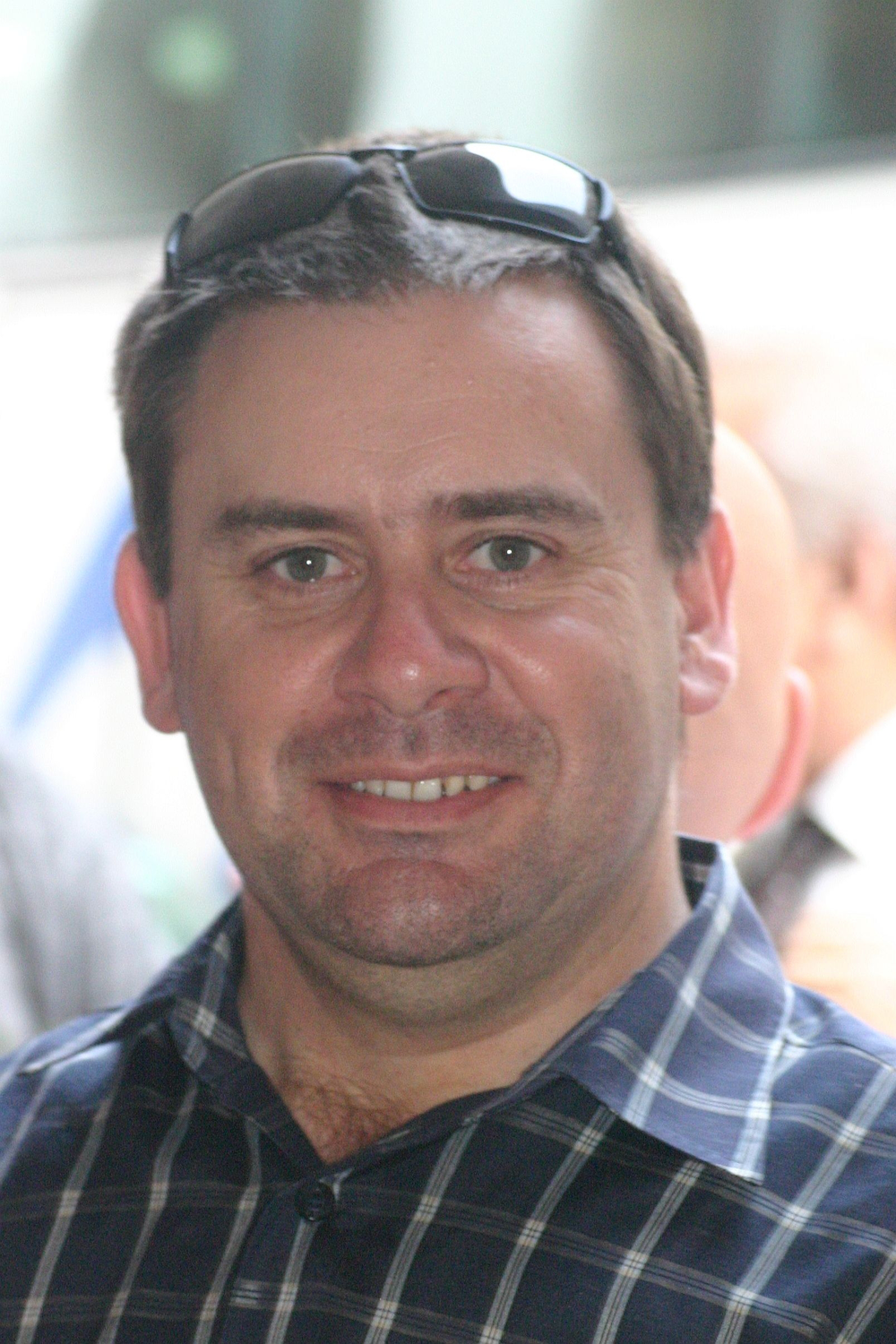
Prof Eric Beh is now retired, having been a Professor of Statistics at the University of Newcastle, where he was formally Head of Statistics and Deputy Head of the (former) School Mathematical and Physical Sciences, comprising of statisticians, mathematicians and physicists. He is now Extraordinary Professor of Statistics with the Centre for Multi-Dimensional Data Visualisation (MuViSU) at Stellenbosch University and is an Honorary Professorial Fellow with the National Institute for Applied Statistics Research Australia (NIASRA) at the University of Wollongong, Australia.
A long time ago Eric was on his state Branch of the Statistical Society of Australia Inc (SSAI) where he held the positions of treasurer, secretary, vice president and president and was an editorial board member of the Australian and New Zealand Journal of Statistics. More recently, Eric is an elected member of the International Statistics Institute and his research focuses, broadly, on issues directly concerned with categorical data analysis including association models, measures of association, ordinal data, aggregated data and their technical, practical and computational development. This work spans 140 publications and has been a topic of discussion at more than 160 national and international presentations. Much of his research has been focused on a variety of issues concerned with correspondence analysis, a statistical technique designed for the visualisation of the association between categorical data and the topic of this workshop. His research has been published in a variety of top international journals including the Journal of the Royal Statistical Society (Series A), International Statistical Review (ISR), Statistical Science, Psychometrika and the Journal of Multivariate Analysis. In 2014, his 2004 review paper on correspondence analysis that appears in the ISR was included in a collection of only 61 "key publications on categorical data analysis" (published by Sage) alongside works by the world's leading statisticians including Sir Karl Pearson, Sir R.A. Fisher, Sir Maurice Kendall, Leo Goodman, Stephen Fienberg and Alan Agresti.
Eric has worked extensively with Prof Rosaria Lombardo for over 15 years jointly publishing about 50 papers with her and where their collaborations have been discussed at many international workshops and invited and contributed conference talks. Together they have published two Wiley books (in 2014 and 2021) that cover a wide variety of issues concerned with correspondence analysis including its origins and eventual internationalisation. They have also published a Springer book titled "Modern Quantification Theory" with Shizuhiko Nishisato (University of Toronto, Canada) and Jose Clavel (University of Murcia, Spain). More recently, Eric and Rosaria have edited a collection of papers with Jose Clavel that celebrates the career of Nishisato and includes 29 papers from 45 internationally recognised researchers that cover topics concerned with correspondence analysis and its related methods.
Conference Proceedings
SASA will once again be producing proceedings of peer-reviewed papers from its annual conference. Presenters who would like to submit contributions for review and publication in the proceedings are invited to submit their papers to the Proceedings Editor.
Papers should contain original research on theoretical or applied statistics. SASA endeavours to produce proceedings of the highest quality.
SUBMISSION INSTRUCTIONS
Papers must be submitted by email directly to the Proceedings Editor (proceedings.editor@sastat.org) as a single PDF document. Papers may be typeset using any software (including Microsoft Word), but LaTeX is highly recommended.
Each submission is limited to 15 pages. To help gauge the 15-page limit, we recommend using the SASJ LaTeX template available on the website at https://bit.ly/3uwIUzA.
ACCEPTED PAPERS
Once the submitted paper has undergone peer review, the corresponding author will be contacted with further instructions. In the case where the paper has been accepted, the author will be responsible for transferring the paper to LaTeX in the official SASJ LaTeX template.
SUBMISSION DEADLINE (EXTENDED)
31 August 2023
SASA 2023 BEST PROCEEDINGS PAPER COMPETITION
This year, SASA will award a prize to the authors of the best paper among papers accepted for inclusion in the proceedings. Criteria for selecting the winning paper are originality, relevance to the statistical and wider community, and academic quality. All members of SASA are encouraged to participate.
All submitted papers will be entered into the competition automatically – no additional action is needed. The papers will be judged by an independent panel.
PRESENTING THE PAPER AT THE SASA 2023 CONFERENCE
All accepted papers must be presented as oral presentations at this year's SASA conference by one of the contributing authors. If authors are unable to do so, the paper will be removed from the conference proceedings. Presenting authors of accepted papers must ensure the following:
- they are registered for the SASA conference, and
- an abstract for oral presentation is submitted to the conference for presentation.
OTHER QUERIES
Queries can be directed to the Proceedings Editor:
Prof. Charl Pretorius (proceedings.editor@sastat.org)
Young Statisticians' Stream
The SASA workshops and conference provides an ideal surrounding for the introduction of young and emerging statisticians into the research world. This is achieved by fostering and encouraging a safe environment where they get the opportunity to present their own research amongst their peers, fellow academics, and world research leaders. By hosting a dedicated Young Statisticians' parallel session as part of the SASA Conference, young and emerging statisticians are provided with:

- a pathway into the research domain where they are gently and constructively introduced to the idea of presenting their research (as an oral or poster presentation) and being judged;
- an opportunity to receive feedback on their presentations from leading experts in the field; and
- an ideal platform to develop and foster collaborations and networking opportunities with their peers and experts in the field.
In addition, the following events will take place at SASA 2023 this year, from which the emerging statisticians will benefit immensely:
- Pre-conference workshops by leaders in their field on day 1 and day 2 of the conference.
- Health Data Science Hackathon will give young statisticians the opportunity to form a team, compete against other teams, whilst learning valuable skills related to optimizing team output.
- Young Statisticians' competitions, within the full program of the SASA conference which gives young statisticians the opportunity to benefit from feedback of experienced statisticians. Both a poster competition for young statisticians and a best talk by a young statistician will be adjudicated during SASA2023. More information is given below.
- Young Statisticians will be invited to the Business Breakfast, where industry leaders (employers) will be seated in round table format, debating issues related to the delivery of the ideally trained statistics graduate for the data age, in the fast-changing world of data.
- Young Statisticians will benefit from the Industry/Academic Panel, which will consist of leaders (national and international) in the Statistics/Data Science world, both on the side of producers of graduates and employers of graduates, to discuss the attributes of the ideal Statistics/Data Science university graduate in the data age.
- Young Statisticians can attend the Cocktail function, along with all attendees of the SASA 2023 conference, after which there will be a special function (music and games) for young statisticians with an aim to encourage the next generation of statisticians to mingle and form friendship bonds that will stand them in good stead over the next few decades.
Young Statisticians' Oral Presentation and Poster Competitions:
Eligible Master's and Doctoral students will have the opportunity to showcase their work in the Young Statisticians' stream during the conference. Cash prizes will be awarded for the best oral and poster presentations. More information and the entry form for the competition can be found here.
Business Breakfast and Industry Stream
The LOC is pleased to announce a Business/Industry stream on Thursday, 30 November 2023, starting with a breakfast.
MOTIVATION
The data-driven Fourth Industrial Revolution-world holds vast opportunity for industry and Analytics practitioners. It is of paramount importance to match and connect the required skills to unlock this promise. This promotes topics such as Analytics Workforce Development, Talent Connection and Talent Reservation to prominence for deliberation at the Industry Stream of SASA 2023.
CHAIR and SESSION ORGANIZER
Director: Education Go-to-Market, Europe, Middle-East and Africa
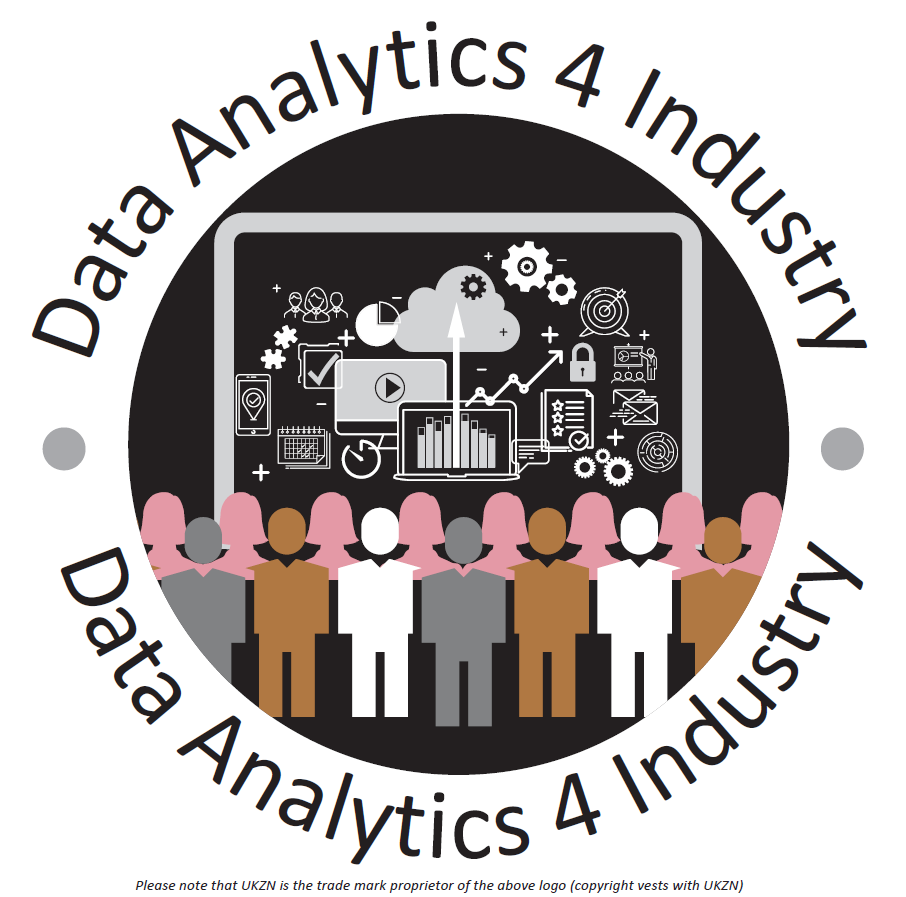
Mr Murray de Villiers is responsible for Workforce Development, compound business and talent connection for SAS EMEA, focusing on improving SAS Customer's Time-to-Value. His expansive career includes process- and discrete engineering, R&D, market strategy, partner enterprise sales, audio production and post-graduate academic teaching.
GUEST SPEAKER
Mr Oliver Chinganya is a Chartered Statistician, Fellow of Royal Statistical Society, Director of the Africa Centre for Statistics at UNECA (United Nations Economic Commission for Africa), Deputy Chair: ISI Capacity Building Committee and Vice President of the International Statistics Institute.
GUEST SPEAKER: PLENARY SESSION (Main Conference)
Prof Dennis Lin is a distinguished Professor of Statistics at Purdue University.
PLAN
A full day program, where delegates from Business, Industry, Government, academics and young statisticians, deliberate on how higher education institutions in South Africa can best meet the ever evolving/ever increasing skills needs of the data-infused workplace.
OUTLINE
- Business Breakfast (Maharani Hotel): Delegates from the employment sector, academic statisticians and young statisticians meet over breakfast (round table format), and listen to talks by the chair (Mr Murray de Villiers) and the guest speaker (Mr Oliver Chinganya) as well as participate in discussions around topic of interest.
- Tea/Coffee
- Plenary Talk by SASA Conference invited speaker Prof Dennis Lin (Elangeni Hotel). Title: Statistics, Data Science and Chat GPT
- The conversation then continues for the rest of the full day Thursday program of the conference, in the one parallel session room of the SASA 2023 conference, through talks, discussions and presentations
Further details when the detailed program is announced.
ITEMS to NOTE
- Registration/Fee for the Business Breakfast (Maharani Hotel 07h30->): There is no cost for attendance of the breakfast in Maharani Hotel or the attendance of the follow-on sessions for delegates. There will be a seating plan for the Breakfast, only delegates that chose the option of attending the Business Breakfast when they registered, will be able to attend the breakfast in Maharani Hotel (limited seating, 180 max).
- Delegates from the employment sector who wish to attend the Business Breakfast and follow on session discussions for the day, register and pay the Day Fee of the SASA 2023 Conference.
- The Banquet Dinner on Thursday is open to all who register for the one day fee too, but requires the additional dinner fee to be included in registration.
STATISTICS/DATA SCIENCE CAPACITY BUILDING DRIVES 2023
Capacity Building Drives to raise awareness and uptake of Statistics and Data Science.
PLEASE NOTE:
Though all universities/entities are encouraged to repeat/copy the above outreach activities, note that Copyright of all 4 logos vest with UKZN. Any use of the above logos should be authorized by the Data Science for Industry Unit at UKZN (contact northd@ukzn.ac.za). Any unauthorized use of the above logos may result in trade mark or copyright infringements.
Women in Analytics/Dudes in Data (OUTREACH event for Grade 11 Learners):
ONLINE Event: Friday 24 Nov, 14h45 – 17h30 (further details on link below).
Every year UKZN hosts a very successful online workshop, for grade 10-12 learners, strong in Mathematics, who are interested in studying and pursuing a career in Statistics or Data Science. This fun and informative afternoon exposes them to practitioners in the field as well as current students and lecturers. Please share with interested learners. There are some great prizes to be won by leaners. Attendance is free, simply register on the link provided in the programme.
Teachers 4 Data Analytics (OUTREACH event for TEACHERS):
CONTACT Event: Saturday 25 Nov, 08h30-13h30 (further details on link below).
The Teachers4DataAnalytics programme, launched at UKZN in 2022, is part of an elaborate series of annual events by the Statistics sector of UKZN, to advocate for studies in Statistics/Data Science amongst the youth. The Teachers 4 Data Analytics programs is an interactive data skills workshop for teachers, with activities that encourage class room practises that aid learners to work/communicate with data. Please share with interested schools/teachers of FET Phase. Attendance is free, simply register on the link provided in the programme.
Data Analytics 4 Industry:
This new capacity building programme, launching at the SASA2023 conference on Thursday 30 Nov, is a full day program, where delegates from Business, Industry, Government, academics and young statisticians, deliberate on how higher education institutions in South Africa can best meet the ever evolving/ever increasing skills needs of the data-infused workplace.
Delegates from the workplace (Government, Municipality, Industry, Business), academics and young statisticians are encouraged to attend this event, which is part of the SASA2023 Conference, full details on can be found here.
Copyright in such logos also vest with UKZN. Any use of the above logos should be authorized by the Data Science for Industry Unit at UKZN. Any unauthorized use of the above logos may result in trademark or copyright infringements.
Program
The SASA 2023 full program and abstracts can be found here. This is the latest version which includes a few amendments (additions and cancellations) compared to the printed program. In addition, the title for the abstract by plenary speaker, Dennis Lin, has been updated accordingly on page 20 to "Statistics, Data Science and ChatGPT".
Please also note the change of venue from the printed program: The Welcoming Function, Young Statisticians' Function and Business Breakfast will now be in the Tugela room which is situated in the Maharani Tower on the second floor.
Information on parking at the hotel is provided in program.
Photos
The photos from the conference can be found here.

